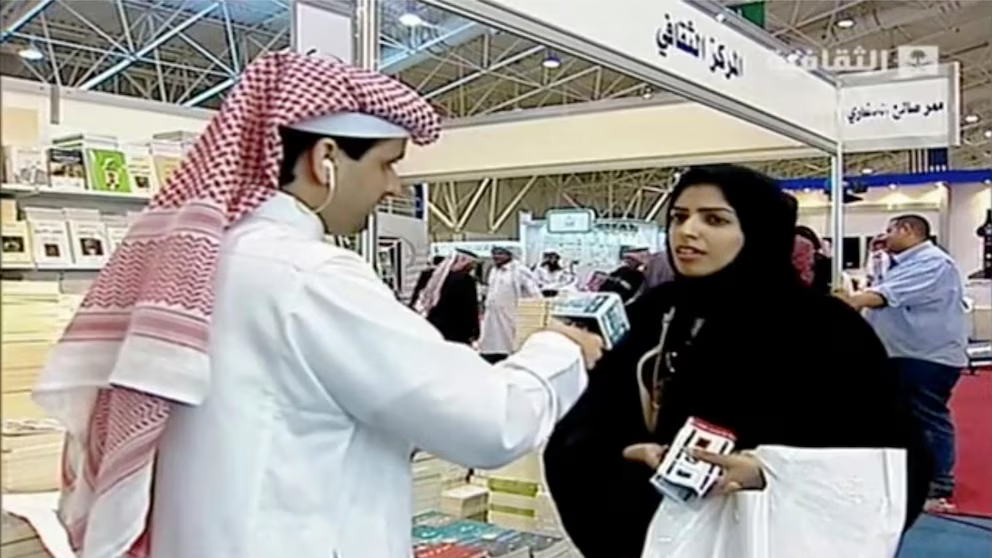
In 2021, while on vacation in Saudi Arabia, Salma al-Shehab was jailed for tweeting in favour of women’s rights.
The release of a Saudi PhD student at Leeds University who was given a 34-year prison sentence for tweeting in favour of women’s rights has been hailed by activists.
Salma al-Shehab, 36, has reportedly been reunited with her two young children after leaving the Saudi Arabian prison where she was detained.
“This is wonderful news,” said Lina al-Hathloul, who oversees monitoring and campaigning for the Saudi rights organisation ALQST, which is located in Europe. “Over the course of her four years in prison, she has not seen her children.”
In January 2021, while on vacation in Saudi Arabia, Al-Shehab was taken into custody. Before being hauled before Saudi Arabia’s specialised criminal court, activists claim she was held in solitary confinement for over nine months.
For the “crime” of using a website to “cause public unrest and destabilise civil and national security,” she was first given a three-year prison sentence.
After a public prosecutor requested that the court take into account further alleged offences, an appeals court subsequently imposed the revised sentence, which included 34 years in prison and a 34-year travel ban.
Al-Shehab was accused of “assisting those who seek to cause public unrest and destabilise civil and national security by following their Twitter accounts” and retweeting their tweets, according to the supplementary allegations.
Her “crime,” according to Amnesty International, was merely “posting tweets in support of women’s rights.”
More than 300 Leeds University faculty, staff, and students signed an open letter in March of last year demanding al-Shehab’s immediate release. She was imprisoned “on the basis of peaceful tweets,” according to the statement.
Al-Shehab had a difficult time in prison, according to al-Hathloul. She stated, “It has been challenging for her.” “She didn’t see her children and wasn’t sure whether she could finish her PhD. Her first sentence of six years was then reduced to 27 years, then to 34 years, and finally to four years. Not even being able to trust the judiciary and its decisions has been a nightmare.
She is quite powerful. Salma is a really courageous woman. She protested the conditions by going on a hunger strike.
Her arrest was deemed arbitrary by the UN Working Group on Arbitrary arrest (UNWGAD) in June 2023, which demanded her immediate release.
Al-Shehab was not an exception, according to al-Hathhoul. She represents a pattern. This pressure led to her release, but many more are still behind bars on the same crimes.
According to al-Hathhoul, the fight now was to get al-Shehab’s travel ban revoked so she could go back to her studies as a dental student in Leeds.
She needs to work towards a PhD. She is among the brightest individuals in her field.
The travel prohibition for her own family in Saudi Arabia, according to Al-Hathloul, whose sister was imprisoned for advocating for women’s rights, was intended to “ensure everyone lives in constant fear.” The weight of this travel ban is beyond my ability to adequately convey. The possibility of being arrested is always present. It is really hefty and truly intolerable.
Al-Hathloul said that her husband had divorced her while al-Shaheb was incarcerated. We don’t know all the details, but it appears that there is a pattern: women are getting divorces that are filed against them without being told.
“It is better than spending 34 years in prison, but it means she is being released under very sad circumstances.”
The US nongovernmental organisation Freedom House’s Brian Tronic echoed calls for the lifting of the travel ban and called al-Shehab’s case a “severe miscarriage of justice.”
“A fundamentally flawed Saudi justice system, where trials are unfair, defendants have alarmingly few rights, and allegations of torture and abuse by police and prison officials are commonplace, is exemplified by Al-Shehab’s unjust and arbitrary punishment,” he said.
Al-Shehab was imprisoned “just because she tweeted in support of women’s rights and retweeted Saudi women’s rights activists,” according to Dana Ahmed, Middle East researcher for Amnesty International.
Her release was not immediately recognised by Saudi Arabia. A request for comment has been made to the Saudi embassy in London.
The Foreign Office stated that it will keep “bringing up issues relating to freedom of speech and human rights worldwide” and that it was keeping an eye on the situation.
Al-Shehab belongs to the Shia Muslim minority in Saudi Arabia, which has long lamented the country’s institutionalised discrimination against its Shia citizens.




